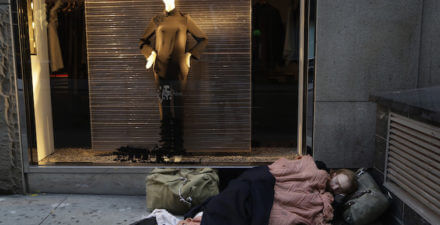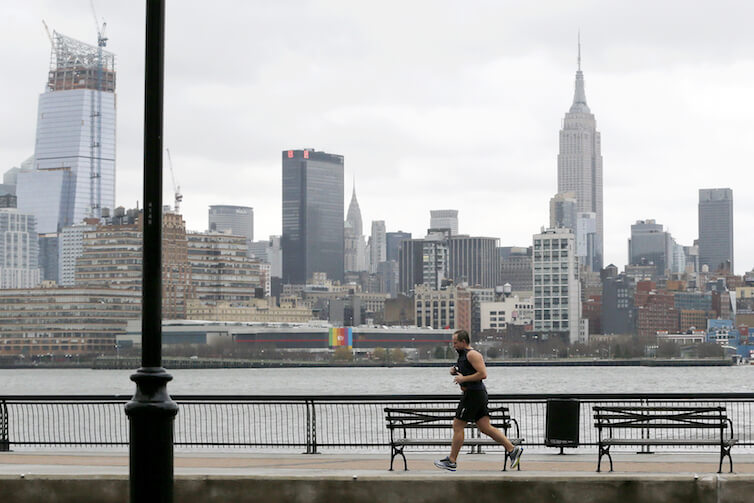Brad DeLong: Worthy reads on equitable growth, December 6–13, 2018
Worthy reads from Equitable Growth:
- Apply for an Equitable Growth grant. “We are now accepting applications in response to our 2019 Request for Proposals. Letters of inquiry for academic grants are due by 11:59 p.m. EST on Thursday, January 31, 2019. Proposals for doctoral/postdoctoral grants and applications to the Dissertation Scholars Program are due by 11:59 p.m. EDT on Sunday, March 10, 2019…”
- If you missed Anne Case and Angus Deaton on “deaths of despair” when it came out at the start of this year, you need to go back and read it. Iris Marechal examined their paper in her column, “The Opioid Crisis: A Consequence of U.S. Economic Decline?,” in which she wrote: “The opioid epidemic continues to devastate families and communities across the United States, causing serious health and socioeconomic crises. The high prescription rate for opioids and the subsequent misuse of this medication by millions of Americans accelerated addiction and has led to a four-fold increase in the rate of overdoses since 1999 … Anne Case and Angus Deaton at Princeton University attribute the sharp increase in drug overdoses between 1999 and 2015 to ‘deaths of despair’ rather than to the increased ease of obtaining opioids: That is, their research suggests that higher drug suicides are attributable to social and economic factors such as a prolonged economic decline in many parts of the United States. They show that white Americans are more affected by the opioid epidemic, yet less affected by economic downturns than other racial and ethnic groups in the country.”
- Raksha Kopparam makes a very nice catch and sends us to the Center for Financial Services Innovation’s “U.S. Financial Health Pulse: 2018 Baseline Survey.” Read her “New Financial Health Survey Shows That Traditional Metrics of Economic Growth Don’t Apply to Most U.S. Households’ Incomes and Savings,” in which she writes: “Single aggregate data points do not capture how economic growth is experienced by different people in very different ways … underscoring the importance of knowing who specifically benefits from a strong economy is a new survey by the Center for Financial Services Innovation.”
Worthy reads not from Equitable Growth:
- All the people who say that it is really not that important to get inflation up leave me flummoxed. I try to determine what they think will happen when the next recession comes. I fail. For some insight, read Joseph E. Gagnon and Takeshi Tashiro, “Abenomics Is Working, Don’t Stop Now,” in which they write: “Japan is on track for its longest postwar economic expansion, with female labor force participation and corporate profits at record highs and unemployment at a 25-year low … [is] the goal of raising inflation to 2 percent … really necessary[?]”
- To what extent is geographic divergence the result of rent-seeking land-use planning run amok? Simon Wren-Lewis examines this question in his “Helping the Left Behind: Its (Economic) Geography, Stupid, in which he writes: “Martin Sandbu points us to a report from the Brookings Institution [that says] ‘for much of the 20th century, market forces had reduced job, wage, investment, and business formation disparities between more- and less-developed regions. By closing the divides between regions, the economy ensured a welcome convergence among the nation’s communities.’ But from the 1980s onwards, they argue that digital technologies increased the reward to talent-laden clusters of skills and firms.”
- It is becoming increasingly clear that the best road forward for the American worker on trade is to join the Trans-Pacific Partnership and keep NAFTA. Read Gary Clyde Hufbauer and Jeffrey J. Schott, “Under the Hood, the USMCA Is a Downgrade for North America,” in which they write: “Trump … called the North American Free Trade Agreement (NAFTA) the worst trade deal ever made. Trade negotiators have branded its intended replacement … a ‘modernized’ improvement. The upgrades draw heavily from the Trump-abandoned Trans-Pacific Partnership … The deal also includes costly new regulations and requirements that discourage investment, especially in the auto sector … higher prices for cars at a time when auto sales are flagging. Ford and GM are already laying off workers … The USMCA limits trade more than promoting it.”
- I think Rich Clarida’s argument in “Data Dependence and U.S. Monetary Policy” is wrong. I think the lower level of the neutral rate of interest and the fact that the Fed has not pursued its 2 percent per year inflation target symmetrically have consequences. Those are that medium-term risks are overwhelmingly asymmetric on the downside. What does Clarida think he is going to do to stem the next recession when it comes? Here’s what he says: “As the economy has moved to a neighborhood consistent with the Fed’s dual-mandate objectives, risks have become more symmetric and less skewed to the downside than when the current rate cycle began 3 years ago. Raising rates too quickly could unnecessarily shorten the economic expansion, while moving too slowly could result in rising inflation and inflation expectations down the road that could be costly to reverse, as well as potentially pose financial stability risks. Although the real federal funds rate today is just below the range of longer-run estimates presented in the September SEP, it is much closer to the vicinity of r-star than it was when the FOMC started to remove accommodation in December 2015. How close is a matter of judgment, and there is a range of views on the FOMC.”
- This ought to be the conventional wisdom about the importance of the American union movement, from Noah Smith’s “Unions Did Great Things for the American Working Class,” in which he writes: “Politically and economically, unions are sort of an odd duck. They aren’t part of the apparatus of the state, yet they depend crucially on state protections in order to wield their power. They’re stakeholders in corporations, but often have adversarial relationships with management. Historically, unions are a big reason that the working class won many of the protections and rights it now enjoys.”






